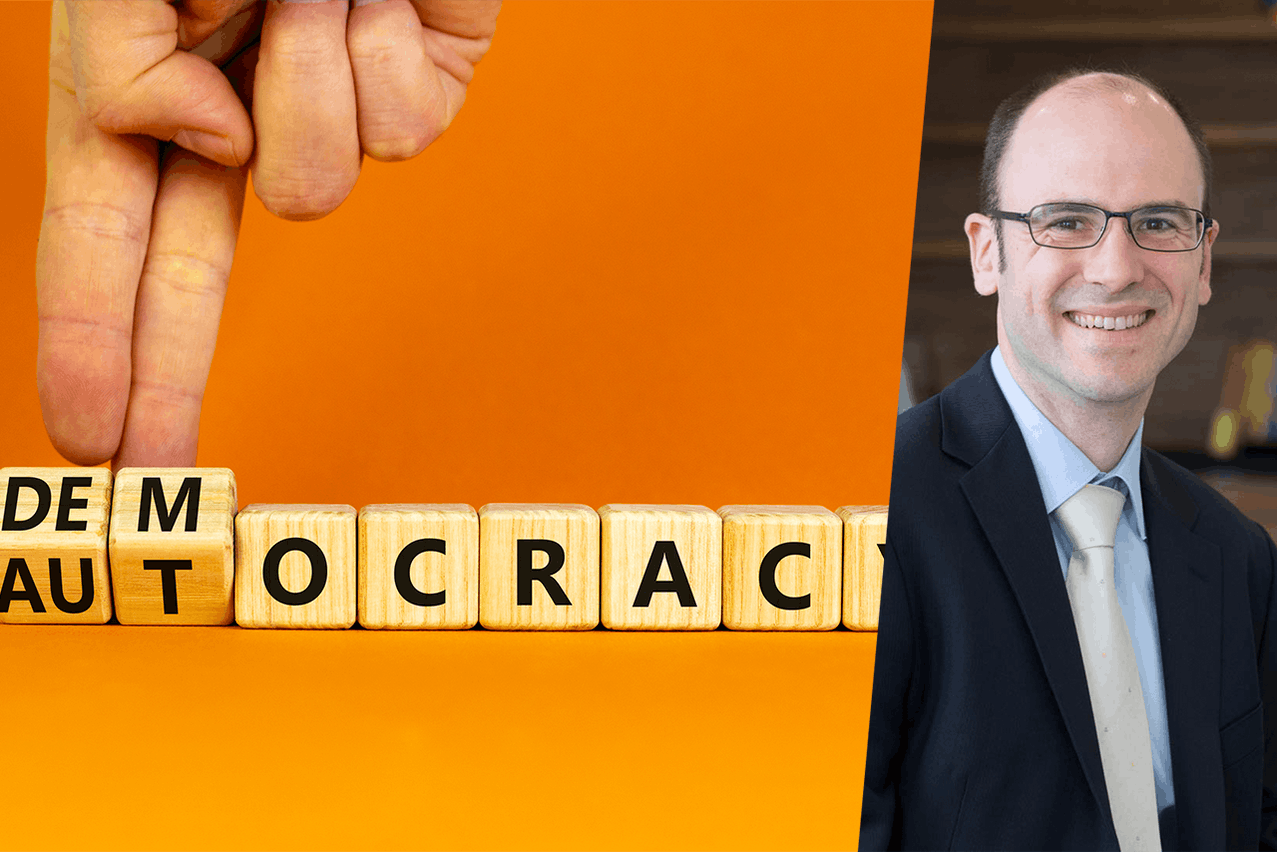“Without creating too much tracking error, nor leaving classic risk premium on the table… we manage to almost eliminate… autocratic risk… to improve long-term risk return in a very significant way,” said Axel Cabrol, co-deputy CIO and head of fixed income at Tobam. He explained that their approach enables Tobam to measure exposure to autocratic countries by using external assessments and measures on the weakness of their democratic institutions.
Tobam, a research-driven asset manager with $2bn in assets on management (as of YE2024), started in 2005 as a quantitative smart beta--long only--shop using an undisclosed measure of diversification to build equity and fixed income portfolios. Nowadays it is also offering financial products based on cryptos and ETFs on US equities. The “vast majority” of Tobam funds are domiciled in Luxembourg.
Sylvain Barrette: How do you identify autocratic countries?
Axel Cabrol: Our process is completely objective. It is not based on Tobam’s view. We use indices coming from various providers such as The Economist Intelligence Unit, and . They analyse several dimensions, and they give an evaluation with field surveys. On our end, we collect their raw data to come up with a score.
We are active in emerging market equity but not in emerging high yield [fixed income] specifically as [our exposure] in the latter about matches the weight of the global high yield index at around 10%. In our global equity strategy, we are underweighted on emerging markets against the benchmark as there are more autocratic countries compared to the developed market universe. China is one-third of the emerging market universe.
When does autocratic risk materialise?
It arrives overnight. Few experts predicted the invasion of Ukraine by Russia. In Russia, one person decides with his subjectivity, resulting in a high uncertainty.
Many investors are reassessing an investment in China while neglecting the political risk, arguing that they may time the invasion in Taiwan right [remove their exposure]. Everyone is aware of the risk, yet flows are going in and greed is high despite changes to the economic and political structure of the country.
Ex-autocratic risks… could China still be worth investing in?
The Chinese stock market does not provide sufficient guarantees of healthy competition to be certain that the valuations are reliable.
I don’t think there’s any case to be made that something has changed in China over the past year about the long-term profitability of Chinese stocks.
Over 30 years, the performance of the Chinese stock market is, in fact, almost zero. Yet in world economic history, Chinese economic development is unprecedented.
[Generally,] stock development comes from earnings growth and valuation. Earnings have experienced a growth level similar to the economy. However, continuous capital increases have dampened earnings multiple expansion, which resulted in no equity performance.
Valuation may have risen to 10 [price/earnings ratio] recently, still a cheap level, yet we are not convinced that there is further upside.
China is a country that devotes a huge part of its GDP to infrastructure or industrial investment, which leads to building overcapacity in most sectors. It is therefore rare to build elevated margins that would pay off for shareholders.
Given the lack of domestic consumption, China has resorted to export industries and relied on the dumping of electric cars and steel products that have destroyed the profitability of their domestic and foreign industries.
Valuation may have risen to 10 [price/earnings ratio] recently, still a cheap level, yet we are not convinced that there is further upside.
When China announces that it will intervene by buying $100bn in Chinese stocks two days before long Chinese holidays, well, one may be tempted to join the party. A short-term boost cannot drive long-term institutional asset allocations.
What is a better emerging market alternative?
India is a better mid- to long-term investment opportunity. Valuation may be elevated, but growth prospects are strong, sustainable and coupled with favourable demographics.
We manage to generate outperformance without exposing ourselves to autocratic risk. It is not true that one must go to China to get an exposure to an industry. One can get exposure to companies with similar risk premium [as in autocratic countries] and greater transparency in democratic countries.
